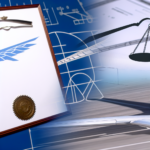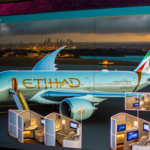SEATTLE- American aerospace leader Boeing has regained its ability to self-certify aircraft under the FAA’s Organization Designation Authorization (ODA), shortly after acknowledging involvement in criminal fraud. This development notably impacts aircraft certified for operations from critical locations such as Seattle-Tacoma International Airport (SEA).
The U.S. Federal Aviation Administration (FAA) has renewed Boeing’s ODA for an additional three years, permitting the company’s internal engineers to approve design and production modifications on behalf of the FAA. This move comes despite recent criticisms regarding safety breaches and legal infractions noted by ViewfromtheWing.
An image illustrating this situation:

The FAA’s decision to renew Boeing’s self-certification privileges is accompanied by increased scrutiny, though critics argue it contradicts the company’s recent legal problems.
Established in 1956, the ODA program allows firms to perform specific regulatory tasks internally to expedite the certification of aircraft and components. Boeing has been a significant participant due to its size and engineering capabilities.
The agency emphasized that Boeing’s renewed privileges are contingent on “strict conditions and enhanced oversight,” including the presence of embedded FAA inspectors, comprehensive staff training, and rigorous auditing of delegated functions.
These precautions aim to mitigate risks while maintaining efficiency in certifying models like the 737 MAX and the 787 Dreamliner.
Boeing employs around 40,000 engineers, compared to the FAA’s 400, making total federal oversight logistically unfeasible. This significant imbalance is one of the reasons the ODA system remains in effect, despite ongoing debates about its effectiveness following past incidents.
A Legacy of Cultural Transformation and Controversy
Boeing’s transition from a firm primarily focused on engineering to a business-centered organization dates back to its 1997 merger with McDonnell Douglas. Former CEO Harry Stonecipher, who came from McDonnell Douglas, indicated that his goal was to intentionally shift Boeing’s culture to a more financially oriented one.
This shift has fostered a disconnect between company leadership and manufacturing processes. Subsequently, Boeing relocated its headquarters from Seattle to Chicago in search of tax benefits and later to Arlington, Virginia, to be closer to federal regulators and lawmakers.
Many critics believe that this separation has led to declining product quality and diminished the integrity of the company’s engineering.
Despite substantial government contracts and financial support, notably through the Export-Import Bank, Boeing’s financial results have not commensurately improved. Its stock price is still comparable to levels seen in 2017, lagging behind inflation and overall market growth.
Economic and Regulatory Dependencies
Boeing’s reliance on governmental associations extends beyond securing regulatory approvals. The U.S. government stands as its largest customer, and much of its international sales are backed by taxpayer-supported funding.
These interrelations underscore Boeing’s political significance, complicating efforts to enforce stricter penalties or withdraw privileges like the ODA.
The FAA’s recent decision is indicative of its limited resources while simultaneously acknowledging the necessity of leveraging Boeing’s internal expertise. Nevertheless, it also underscores the challenges in holding accountable a company with a complex history regarding safety and compliance.
Quality Challenges Impact Long-Term Value
Ongoing quality concerns have compelled Boeing to offer substantial discounts to attract airline orders. Production slowdowns, FAA inspections, and complaints from airlines have further exerted pressure on its commercial aircraft division.
This operational strife is reflected in market performance, as Boeing has struggled to achieve the premium pricing and customer loyalty generally associated with higher-quality offerings.
Ultimately, the key to rebuilding its reputation and shareholder value hinges on the delivery of safe, reliable, and innovative aircraft, rather than on regulatory flexibility.
Stay connected with us for the latest updates. Additionally, follow us on social media for ongoing news in the aviation sector.
Join us on Telegram Group for immediate aviation updates. You can also follow us on Google News for more insights.
Bhavya Velani is the founder of Aviation A2Z. He began Aviation A2Z as a YouTube channel and developed unique and engaging content for aviation professionals. His passion lies in writing aviation blogs and creating captivating content. Since its inception in 2018, Aviation A2Z has experienced rapid growth, attracting one million monthly visitors. Bhavya contributes to various publications, including Airways Magazine, AIRLIVE, AeroXplorer, and Travel Radar.
Based on an article from aviationa2z.com: https://aviationa2z.com/index.php/2025/06/02/faa-renews-boeings-self-certification-powers-despite-fraud/?utm_source=rss&utm_medium=rss&utm_campaign=faa-renews-boeings-self-certification-powers-despite-fraud



